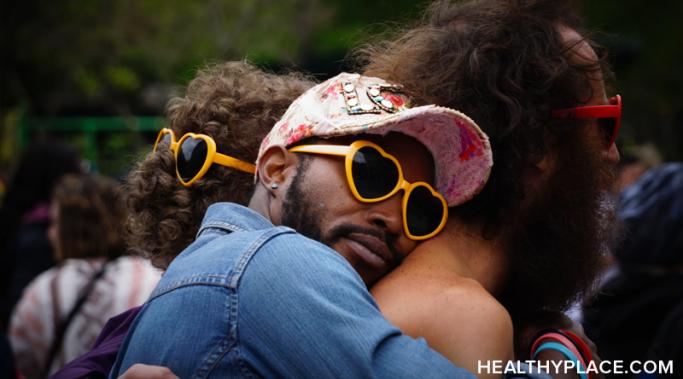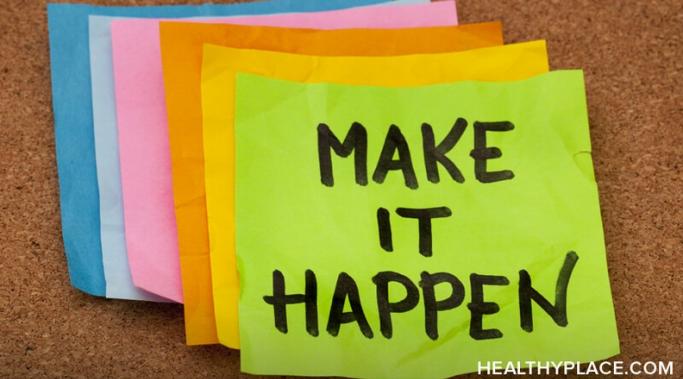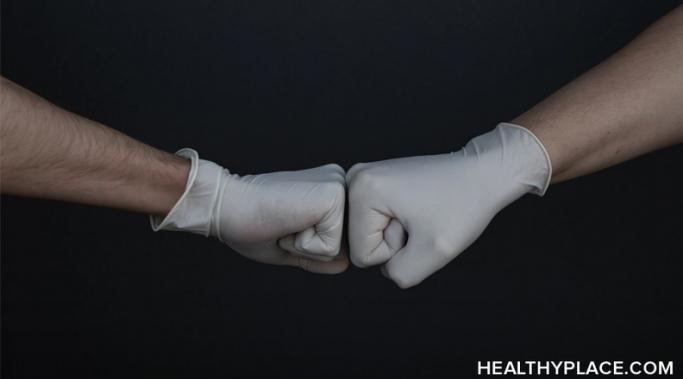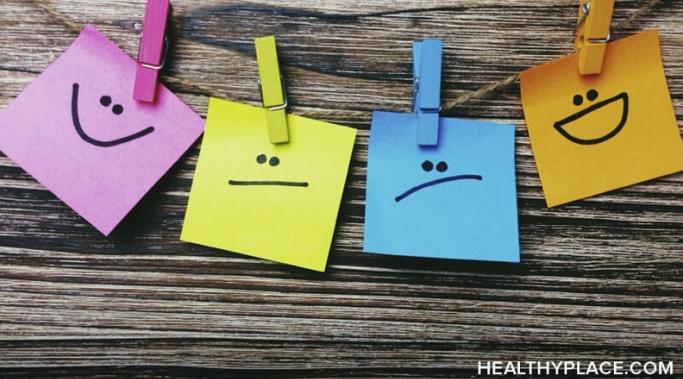I am experiencing heightened anxiety at the moment, as I am waiting for important medical results. I usually avoid sharing my anxiety with my family, but this time I decided to be more open. Telling my brother, who has chronic mental health issues, about what I am going through was surprisingly helpful.
Mental Illness and Media
Pets are important and beneficial in general, but they can play a special role in the lives of those with mental illness. I never owned any pets as a child, but I adopted a dog as an adult, and my brother has become an honorary pet parent as a result. I am amazed to watch how his relationship with my dog helps him cope with chronic anxiety and depression. Here is a short reflection on the benefits of pets for family members with mental illness.
In January, wellness culture tends to be more prominent than ever -- it seems as if the whole world becomes intent on creating a healthier, more productive version of themselves. For those with mental illness, this narrative can be damaging. My brother, who has chronic anxiety and depression, has often spoken about how wellness culture can leave him feeling frustrated and inadequate.
Mental illness in the media can cause widespread public discussion. If you have real-life experience of mental illness, others may try to engage you in a conversation about media coverage, not realizing your story. I often find myself becoming upset by comments made by others on mental illness in the media because of my brother's chronic anxiety and depression.
When we were little, I spoke on behalf of my brother a lot because he had a speech delay. He would regularly mix up or mispronounce his words, and I would find myself acting as some sort of amateur translator when he spoke to anyone outside our immediate family. My most commonly used phrase was, "What he's trying to say is . . ."
Over the past few weeks, there has been a lot of media coverage about the suicide of television and radio presenter Caroline Flack. I didn’t know Caroline beyond seeing her on TV, but hearing about her death affected me deeply for some reason. I had a panicked sleepless night, and couldn’t shake the feeling of tearfulness that started as soon as I’d been told about the suicide. (Note: This post contains a trigger warning.)
In our neighboring Newtown, Connecticut, too many families are steeling themselves for the anniversary of an unspeakable tragedy: the shooting at Sandy Hook Elementary School on December 14, 2012.
I've recently been interviewed for an article (coming out soon) about whether I think the Mental Health system in Connecticut has changed in the year since the incident. My answer? Not yet, not that I can see. If anything, we're in danger of sweeping the issues under the rug once again.
But the questions remain: Could it have been prevented? Should someone have seen the "signs"? And - more usefully, perhaps - what can be done to help stop future tragedy?
I am doing an on-air shift at a radio station today - so have access to the NewsWire from the Associated Press. This just in:
NEW YORK (AP) _ The mother of the man who killed 12 people at the Washington Navy Yard says she is ``so, so very sorry that this has happened.''
Cathleen Alexis said Wednesday in New York City that she does not know why her son, Aaron, did what he did and she will never be able to ask him.
Today, nearly two months since my last post about Amanda Bynes, she has finally been admitted for psychiatric evaluation. What took so long?
This much I have personally experienced: until someone you love is of “harm to self or others”, it’s next to impossible to get him or her placed for evaluation. Unfortunately, sometimes by then it is too late.
Yesterday, Amanda’s parents were finally able to apply for conservatorship – a decision that was delayed, as it looks like Amanda will stay under psychiatric care for at least two weeks. For this time, as I know all to well, her family will have a time to regroup a bit, breathe a sigh of relief that Amanda is safe for the moment, and gather strength for the fight that lies ahead.
This month we are living with fingers crossed.
Ben has had a close call, once again, with his symptoms of schizophrenia. We don't know how it happened, but somehow in late May Ben's med levels began to drop. We saw the usual warning signs (agitation, self-talk, lack of focus, too-forced interactions, loud and constant music in his iPod, lack of desire to engage, etc.) and yet he kept insisting he was "fine" and "nothing is wrong."
But we knew. And we ordered tests. The test result? Med levels near to zero.
So we took new precautions, which unfortunately must include a lockbox for the meds. It feels like we have gone backwards in the quest for Ben's independence. And ours.









